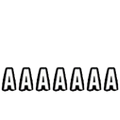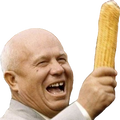Part 1 | Part 2 | Part 3 | Part 4 | Part 5 | Part 6
Price, Value, and Exploitation using Input-Output Tables
Part 6: Resolving the Transformation Problem and Future Directions
Let's wrap this up!
Resolving the Transformation Problem
I originally wasn’t going to discuss how the transformation problem can be solved, but at this point I think it would be an insult to anyone who has read this far not to show it. Almost all the pieces have already been laid out, so let’s do it!
This is Ian Wright’s solution to the transformation problem, and you can read more about it in Ian Wright - Marx’s transformation problem and Pasinetti’s vertically integrated subsystems (2018) or in the many articles I share at the end of this post.
If you recall what I said at the end of the last post
A challenge still remains though in finding a measure of labor-value that tracks costs in the same way that prices do… If prices p can change as profits increase but values v remain constant, then labor-values can not account for the entire costs which prices represent. But we know, and just saw, that profit is surplus labor!
So each term in our price equation appears to be connected to labor, but there is no way to get p from v alone... What gives?
Maybe there's another way to measure labor? A measure that v just isn't capturing?
Let’s approach this in two ways. First, let’s show that our natural prices can be written as some type of transformation of labor inputs. This alone won’t solve the transformation problem but does show that prices are already some combination of labor inputs.
Second, we’ll show how to derive a new measure of value which measures costs in the same way that prices do.
Approach One: Reducing Prices to a Sum of Labor Inputs
The goal of the first approach here is show more clearly how prices are already a transformation of labor inputs.
Let’s first take our definition of labor values
v = 𝓁 (I - A)^-1^
We can rewrite the above by using the following identity stating how a matrix inverse can be expanded into an infinite sum
(I - x A)^-1^ = I + x A + x^2^ A^2^ + …
where x=1 in our equation for value. This lets us rewrite value as an infinite sum of labor inputs
v = 𝓁(I + A + A^2^ + … )
v = 𝓁 + 𝓁 A + 𝓁 A^2^ + …
So we can see that labor-value is an infinite sum of direct labor inputs each weighted in some manner by the technical input-output coefficients.
This infinite sum has an economic meaning, it is an infinite list of all the co-occurrent or coexisting labor needed to produce
- The product: 𝓁
- The means of production for the product: 𝓁 A
- The means of production of the means of production for the product: 𝓁 A^2^
- Etc.
The labor comprising each term should be seen as coexisting, not antecedent. You could see each term as the coexisting labor needed, during the same cycle of production, to produce all inputs. You could also see this as the coexisting labor which would be needed to restore, or reproduce, all inputs when they are used up. Hence, it’s the labor that would be theoretically needed right now to reproduce the economic system and restore what has been productively consumed.
That value is measured by coexisting, or simultaneous, labor is noted by Marx in Capital Vol. III Ch. 21 (emphasis mine)
[Raw] cotton, yarn, fabric, are not only produced one after the other and from one another, but they are produced and reproduced simultaneously, alongside one another. What appears as the effect of antecedent labour, if one considers the production process of the individual commodity, presents itself at the same time as the effect of coexisting labour, if one considers the reproduction process of the commodity, that is, if one considers this production process in its continuous motion and in the entirety of its conditions, and not merely an isolated action or a limited part of it. There exists not only a cycle comprising various phases, but all the phases of the commodity are simultaneously produced in the various spheres and branches of production.
And in Capital Vol. I Ch. 8 (emphasis mine)
If the amount of labor-time socially necessary for the production of any commodity alters - and a given weight of cotton represents more labor after a bad harvest than after a good one- this reacts back on all the old commodities of the same type, because they are only individuals of the same species, and their value at any given time is measured by the labor socially necessary to produce them, i.e. by the labor necessary under the social conditions existing at the time.
Now let’s take our natural price equation and expand it similarly. Recall that prices are
p = w 𝓁(ϱ I - A)^-1^
now rewrite it in terms of r with a little bit of algebra
p = w(1+r) 𝓁(I - (1+r)A)^-1^
And let’s use that above identity for expanding a matrix inverse as an infinite sum.
p = w(1+r) 𝓁(I + (1+r)A + (1+r)A^2^ + …)
p = w ((1+r)𝓁 + (1+r)^2^𝓁 A + (1+r)^3^𝓁 A^2^ + …)
We can see that prices can be expressed as a sum of labor inputs multiplied by the wage, but the sum has some strange weights that depend on the profit rate and the technical input-output coefficients. The profit rate and coefficients are both unitless, though, so each term in the parentheses is still expressed in units of labor-hour.
So prices and values are both infinite sums of labor inputs, but in the expanded price equation each labor term gets an extra weight due to profit rates. It’s as if the existence of profits leads to an extra bit of labor being included in the price-cost.
Now in the last post when I last said
Maybe there's another way to measure labor? A measure that v just isn't capturing?
I hope it’s a bit clearer by what I meant. By expressing the price equation as a (weighted) sum of labor inputs you can see that profit rates cause each labor term to have an extra weight to them in contrast to the labor terms composing v. Prices contain an extra bit of labor costs that just aren’t included in the definition of v, so there can be no way to get prices from v.
The extra labor cost included in prices are the costs of the surplus labor, and the standard definition of value does not include surplus labor as an explicit cost.
Ian Wright refers to this as a category error. The standard measure of value isn't designed to consider labor-costs in the same way that prices do. We are making a category error if we ask values to measure prices once surplus value is involved.
We can think of the standard, or classical, labor-values v as a pre-institutional measure of labor costs. Standard values tell us the labor costs of products when no exploitative institutions are at play. Hence, they can act as normative measures. They can tell us the labor costs of an item if workers didn’t have to provide extra surplus labor. This means that we can compare the prices to these values, i.e. p - w v, to tell us how much extra labor-costs the workers are providing to sustain a parasitic capitalist class. But these values are technical costs of labor and do not take into account the institutional requirements of exploitation under capitalism. So they can’t be used to describe actual costs (prices) under capitalism.
A non-standard labor-value, one that Ian Wright provides, acts as an institutional measure of labor costs. They aren’t normative so much as descriptive of the actual institutional labor costs that exploitation incurs on workers. Such a measure would not be a solely technical cost, but would include surplus labor as a necessary labor cost under capitalism.
As Ian Wright puts it in Marx’s Irrational Irrational Commodity (2021)
But there is a real cost, of a kind, that is incurred to supply money-capital. Finance capitalists don’t lend out their money-capital unless part of the working day is devoted to producing goods for their consumption.
The necessaries, and luxuries, of life are a necessary condition of the supply of money-capital….
Finance capitalists, and capitalists in general, cannot live on air. The reproduction of the class of people, who own and supply money-capital, incurs labour costs.
And in The Transformation Problem (2016) - taken from his thesis The Law of Value
Money-capital has a price, the profit-rate, which is a ‘mark up’ component of the money cost of a commodity. Money-capital also has a real cost, which, in the case of simple reproduction, is capitalist consumption. Production prices, as total money costs, include the profit-rate as a money cost of production, and therefore prices depend on the distribution of nominal income. But classical labour-values, as technical labour costs, exclude the labour cost of money-capital as a real cost of production, and therefore labour-values are independent of the distribution of real income. In summary, the dual accounting systems apply different cost conventions and, in consequence, there cannot be a one-to-one relationship between prices and labour-values: in the classical framework the profit-rate component of money costs refers to labour costs that are not counted.
For capitalism as a system to reproduce itself, surplus labor is a “necessary” cost. Their tribute is necessary for the system to exist as an institution. It is that institutional cost that Wright’s value hopes to capture.
Now I’ll provide a quick proof on how to derive this alternative labor value.
Approach Two: Wright’s Non-Standard Labor Values
Take a look at our price equation again written out in terms of the different costs
p = w 𝓁 + pA + r(w 𝓁 + pA)
where the last term is the profits per unit gross output.
Let’s recap the supposed problem and what we’ve found in the previous post
- Part of the labor theory of value states that price costs are a measure of labor-costs, i.e. value.
- But the price equation we derived has a pesky term for profits that doesn’t appear to come from labor. It doesn’t appear to be a labor-cost!
- So price costs can’t be reduced to labor-costs, i.e. values.
- But we saw in our last post on simple reproduction how profits are spent on surplus product
- And we saw that surplus product is produced by surplus labor.
- We even calculated the amount of surplus value that would be needed for some amount of surplus product!
- So the profit term can be reduced to an amount of surplus labor
- And so the price equation is a measure of labor costs
- But price costs can’t be measured with v
- So we need a new measure of value that actually does consider surplus value as a distinct cost.
Here’s a derivation of this new value.
Take the above price equation and recall that the flow of money-capital is M = mq = w 𝓁 q + pAq, where m are simply the unit-costs of money-capital. Use this to rewrite the equation as
p = w 𝓁 + pA + r m
Now here is the important piece, the piece that connects profits to labor. Our profit rates can be written as
r = Π/M
and note that profits are realized as capitalist consumption goods, so
r = pc^(K)^/M
Insert this expression of the profit rates into the price equation
p = w 𝓁 + pA + (pc^(K)^/M) m
Now here is the part where you may have to “trust the math” if you aren’t familiar enough with linear algebra. I really hate leaving an explanation at “trust the math, bro”, but you can see Ian Wright - Marx’s transformation problem and Pasinetti’s vertically integrated subsystems (2018) for a more thorough rundown and justification for what’s to follow.
You can also work this out yourself if you are familiar with how to perform outer products, i.e. multiplying a column-vector by a row-vector. It isn’t too bad once you see how the indices all work out. I don’t want to continue to bog us all down in what’s already been math-heavy, though, but I’ll try to give some reasoning as to why the math is saying what it does.
So here's what we'll do. Take that last term above (pc^(K)^/M) m and rearrange it as
p (1/M c^(K)^m)
The “magic” is that the term in the parentheses (1/M c^(K)^m) is a capitalist consumption matrix which we’ll denote as C^(K)^. So the final term for the unit-profits can also be written as the price vector times this capitalist consumption matrix
pC^(K)^
The capitalist consumption matrix encodes how much capitalists of each sector consume of from each other sector. Just as the input-output matrix encoded the inter-relations between industries (how much each industry used from other industries), the capitalist consumption matrix does this for the inter-relations of consumption goods distributed within the capitalist class.
An element C~i,j~ ^(K)^ in the matrix tells us how much capitalists in sector j consume of product i per gross-product q~j~ produced by their sector.
We can write the i,j element of the matrix as
C~i,j~ ^(K)^ = m~j~ /M c~i~ ^(K)^
C~i,j~ ^(K)^ = M~j~/M c~i~ ^(K)^/q~j~
Where M~j~ is the money-capital advanced in sector j, i.e.
M~j~ = w 𝓁~j~ q~j~ + pa~★,j~ q~j~
Note that C^(K)^ is unit-less.
The amount of good i that capitalist investing in sector j consume is then
C~i,j~ ^(K)^ q~j~ = M~j~/M c~i~ ^(K)^
Essentially this says that when profit rates are equalized the proportion of good i that the capitalists investing in sector j can consume is equal to the proportion of the money-capital they invest in sector j to the total capital M advanced in the economy.
And under profit equalization this is equivalent to saying the amount that a capitalist-sector can consume is proportional to the profits they make in their sector.
Now by writing our unit-profits as pC^(K)^ we are counting capitalist consumption goods as a cost of production.
Let’s use this capitalist consumption matrix to write the price equation as
p = w 𝓁 + pA + pC^(K)^
Now solve for prices and we get
p = w 𝓁(I - A - C^(K)^)^-1^
We’ve replaced the profit rate with data on the physical distribution of consumption within the capitalist class.
Let {A|~} = A + C^(K)^ and expand the above inverse into the following infinite sum
p = w 𝓁(I - {A|~})^-1^
p = w (𝓁 + 𝓁{A|~} + 𝓁{A|~}^2^ + …)
Now each term of our price equation is a labor input weighted by our augmented input-output matrix {A|~}. As long as we have data on the inter-relationship on flows of capitalist consumptions (just as we need data on the inter-relationship between industry inputs for A) we can use it to calculate our new definition of value.
{v|~} = 𝓁(I - {A|~})^-1^
Another approach is to set this up as an eigenvalue equation and solve for the eigenvector of non-standard values, but let’s not get into that.
These augmented terms in our new value equation weigh labor within the infinite sum such that surplus product is now explicitly treated as a cost of production, a separate labor-cost. We now have a measure of value that measures labor-costs in the same manner that prices do. In other words, we have found the costs of labor that prices are measuring!
Prices can be reduced to labor-costs!
p = w {v|~}
The real price of everything … is the toil and trouble of acquiring it.
We just also have to add the surplus labor of producing capitalist’s consumption products to this toil and trouble. For workers to acquire a product, they must not only produce it but they must also produce surplus products somewhere in the economy for the capitalists who employ them. This surplus toil is a necessary institutional cost for capitalism.
Now one objection I can hear is that real capitalists don’t spend their entire profit on consumption items. ”Sure, this works under the assumptions of simple reproduction, but what about a more realistic capitalist economy?”
I may not be able to completely satisfy your criticisms, but if capitalists are taking part of their profit and investing them in machines, supplies, etc. then these are still products of labor and hence still impose a cost of surplus labor. So capitalist consumption can be expanded to include productive consumption via investments. You could even wrap these investments up in an input-output matrix.
In the case that a capitalist hoards their money, though, then I may not be able to give a satisfactory answer. Perhaps one could introduce a savings parameter that augments their expenditure, and hence the non-standard value.
Here is another interpretation that is something I am working with. It may not be sound, so I am open to debate and better interpretations: We could still see any hoard of money as still representing a claim on surplus value. This is one of money’s functions as a store of value. Whether that value is produced now or in the future, this hoard can still be equated with some mass of surplus labor that would be required for its eventual realization. If the profits are beyond what is feasibly realizable (beyond the economy’s productive capacity) then eventually it will be realized that the profits don’t have value, or at least as much value as previously thought. The claim of surplus value those profits represent collapses and becomes an illusion if that surplus product itself fails to ever materialize.
So excess or hoarded profits and prices may at first appear to be beyond what would our natural prices and our non-standard values predict, but eventually a correction will occur if surplus production can’t be ramped up. In such a case there will be a divergence between the actual market prices and profits vs. what the attractor predicts (and we’ve accepted such divergences from the start) - but the attractor still has a long-term regulation on what is possible and what is actually meaningful. A hoard of gold becomes useless if there’s literally nothing to ever spend it on.
That is, at least, my running theory - so it may not be entirely sound 
Future Directions
Something I like about linear production theory is that it is so open. You could expand this framework in so many different directions depending on your interest.
Nonlinearity?
We’ve been open about the linear assumptions of this model. Perhaps one could keep the network approach presented here, but make it nonlinear by generalizing the production function and how the inputs scale. What are presented as matrices here, like A, would then be nonlinear operators on a network of value flows.
Arghiri Emmanuel and Unequal Exchange
Does the assumption of equal wage rates bother you? Do you want to consider the case where some working sectors are paid less than others? Great, you can do that here!
We can investigate Arghiri Emmanuel’s ideas of unequal exchange between different sectors, or even between a center and a periphery, by keeping wages of the different sectors w~j~ distinct and calculating the flow of value between working-sectors.
Two working-sectors that provide the same labor can still end up consuming different values if the wages in the sectors differ. Higher paying workers end up extracting value produced by lower paid workers, and our linear framework actually allows us to calculate this transfer of value.
This is a different aspect of value transfer in contrast to profits. While profits are value transfers form a working class to a non-laboring exploiting class, unequal exchange is the unequal transfer of value within a class (and/or between nations)
Some will criticize linear production theory for assuming constant wages, but I mean it’s really not hard to introduce a diagonal matrix for distinct wages W into what we’ve done. I don’t understand why economists act like this is some great impossibility.
There are a lot of things I don’t understand about economists.
Global Value Transfers
So we could model unequal exchange within a nation, but we could also extend this entire linear production framework to include different nations each with their own wage rates, labor productivity, etc.
Then you can investigate unequal exchange between the core and the periphery, and value flows between nations and their classes.
This framework also helps to clarify when value is transferred via profits, vs transferred via wage difference. Sometimes Marxists seem to get really confused (and sometimes angry) about unequal exchange. Some think that it claims exploitation is occurring in exchange - but this is not true. Value is still produced by labor in production, as always, but the different prices of labor allow for its unequal distribution.
As Torkil Lauesen states it:
The core of the theory of unequal exchange is the Marxist concept of value. It assumes the existence of a global value of labor on one side, and, on the other side, a historical capitalism, which has polarized the world-system into a center and periphery with a correspondingly high- and low-wage level. This difference in the price of labor entails a value transfer, hidden in the price structure when commodities are exchanged between the center and periphery of the world-system. The central point is not the exchange itself, but the difference between the global value of labor and the different prices of labor power.
Once you can show the above with linear production theory then these confusions start to fade away. The distinction between value transfers via profit and transfers via wage differentials become clearer. You may have to learn some math, but…
There is no royal road to science…
This also gives you a tool to actually calculate it! If you want to do empirical economic research on value flows within imperialism like Jason Hickel (the good one) then here you go!
Reproductive Labor and Healthcare
Here all labor that is done was remunerated with a wage, but reproductive labor is labor and it often doesn’t get paid a wage. I think this model is flexible enough to include this.
Introduce some new worker-nodes specifically for reproductive labor, rewire some relationships between the nodes to reflect the real social relations. Perhaps the reproductive labor nodes don’t get a direct wage but receive value flows from other worker-sectors (typically dominated by male wage-workers with familial institutions) and you have a model capable of giving a voice to unpaid reproductive labor.
You can investigate how much labor they put into reproducing the working class vs how much value they are able to consume given the specific institutional set-ups.
And you can investigate different situations, what if capitalism tries to absorb their labor into commodity producing wage-labor, turning care into a commodity. What if instead the state, or society in some form, were to pay them a wage? One could test out the implications of different social arrangements perhaps.
Here is a materialist framework that allows for the intersection of value theory with feminist economics.
What if we want to model care work more explicitly? Workers should be able to produce a surplus to care for the sick and those who can not work. We can wire up these relations in our network model to model healthcare, hospitals, elderly care, the sky’s the limit. We can even introduce these labor-costs into a new definition of value, one that appropriately accounts for the labor of care.
I think this framework is flexible to introduce all sorts of arrangements as long you are creative and care about asking these questions.
Unproductive vs Productive Labor
We can also introduce different worker-sectors for productive vs unproductive labor as well.
Productive labor produces surplus value, while unproductive labor (like the FIRE sector) redistributes and consumes existing surplus value.
As Paitaridis and Tsoulfidis put it (emphasis mine):
For Marx, productive is the labor, which is activated in the sphere of production, where capital hires labor and non-labor inputs in order to produce more value than the value of inputs… By contrast, in the sphere of distribution, there is no creation of new (use) values,
but those that have been already created in the sphere of production change possession or ownership. Similarly, the labor and non-labor inputs employed in the sphere of social maintenance are engaged in the preservation of the existing status quo.
In sum, unproductive is the labor which, rather than expanding production and wealth of
society, is simply consuming wealth that has been already produced in order to distribute or protect (maintain) the wealth created in the sphere of production.
We could introduce unproductive labor in financial sectors, or in the police or military, which facilitates profits and maintains the system of exploitation. It maintains the system but doesn’t itself produce value. It maintains and distributes surplus while also consuming a part of it. You could discuss the value flows from productive to unproductive workers in this networked model.
Just make sure to avoid the Jackson Hinkle (the bad one) mistake of abusing this distinction and saying shit like “baristas don’t produce value and are actually exploiting the poor wittle hard-hat hard-working (white) construction workers.”
I have a pit of my own specially dug for those that espouse that sort of shit.
In fact some people prefer to do away with the distinction between productive and unproductive labor because the lines may be hard to draw and can easily be abused by patsocs and other losers. Citing the above paper,
As is well known there is no consensus about the definition of productive and unproductive
labor and also about the wealth-reducing effects associated with the rise in unproductive activities and labor.
Are transportation workers producing value? Well on one hand they didn’t directly produce the products, but on the other hand without their labor there is no realization of the product and hence no realization of value. The labor of the transport worker or of the barista is just the final leg of value added in that product's long journey to your pie hole - but value added it still is. So sometimes I see writers classify them as productive and sometimes I see them classified as unproductive.
I am not well versed enough in productive vs unproductive labor myself, so if others want to make a post digging into that then I would benefit and love to read it!
But I do think there are some obvious cases (like police and finance) where the category can be applied and we can discuss the value transfers that such groups suck up. And I think it is useful to be able to distinguish economic growth in productive industries vs unproductive ones like finance. Finance workers redistribute value flows, but also unfortunately financiers have to be fed, housed, clothed, etc.. So they not only redistribute value flows while producing none themselves, but they also parasitically suck some up value.
How about we include as much of that as we can in the above model?
So the flows of value associated with finance are still real flows in the economy - and it’s a flow that can’t directly go toward capital accumulation. So it can be a measured drag on capital accumulation. This the conclusion that Paitaridis and Tsoulfidis make in the above paper:
Unproductive labor is of central importance to capitalism, regardless of the differences (usually
minor) in its definitions. The idea is that unproductive activities are a burden to capital accumulation, because they reduce the amount of social product that can be invested productively.
Just be aware of the potential for abuse I suppose?
Toward a Dynamic Model
Another direction is to move beyond discussing the attractor, or gravitational center, and start discussing the actual dynamics.
This is too big of a topic to go into here, so I will leave you with more readings where attempts are made to formalize some dynamic models.
Walker, R. The Dynamics of Value, Price, and Profit (1988) A qualitative description of capitalist dynamics, avoids formal models.
Duménil, G. and Lévy, D. The Dynamics of Competition: A Restoration of the Classical Analysis (1987) An early attempt to model capitalist dynamics. Serves as an inspiration for the following two papers by Wright.
Wright, I. The Emergence of the Law of Value in a Dynamic Simple Commodity Economy (2008)
Wright, I. Classical macrodynamics and the labor theory of value
Now if you want something regarding nonlinear dynamics, you can check out:
Strogatz, S. Nonlinear Dynamics and Chaos
This is an amazing introduction to dynamical systems and an easy read. You will need to know ordinary differential equations, though. Becoming familiar with dynamical systems can also help understand why we took the attractor approach - or why I view the equilibrium system as an attractor. It is recognized that finding analytic solutions for a system’s exact trajectory is often hopeless. You’ll often need to simulate them, and that can be obtuse for the purposes of analysis. Often studying the attractor, the phase portrait, etc. can give you a better intuition for a system than straight up solving the equations of motion on a computer. I think of this framework as operating within this vein.
If you want a (math-intensive) introduction to complexity science then you can try
Thurner, Klimek and Hanel Introduction to the Theory of Complex Systems
It’s a new field though, so there are competing frameworks even within complexity science. The field hasn’t settled down yet. That’s also the case with this field - Marxist economics.
You should also look up other schools such as Temporal Single-System Interpretation; The New Interpretation; authors like M.C. Howard and J.E. King, Dumenil, Levy, Kliman, Moseley, Mohun, Shaikh, etc. Everyone disagrees with each other so it’s a fun time!
Read the economists who interests you, but even more important than that - read Capital!
Some Foundational Texts and Final Comments
There is still much I’ve left out, I didn’t discuss the eigenvalue approach or the research done in that direction such as T. Mariolis et al. Modern Classical Economics and Reality: A Spectral Analysis of the Theory of Value and Distribution.
I didn’t mention anything about joint production, or adding fixed capital (machines) to this. Or adding economic growth. This is covered to various extent in the literature. I’ll leave some texts if one wants to dig in.
There’s always Sraffa’s Production of Commodities by the Means of Commodities (1960) which kick started this. But if you want to dig into some more background for the above then there are some books by Pasinetti I can suggest, but note that as a post-Keynesian he does reject the labor theory of value to a degree. Nonetheless it’s foundational work for the above.
Pasinetti’s Structural Economic Dynamics (1993) is solely focused on the pure labor economy and its growth. Don’t let the fact that it is an abstracted pure labor system dissuade you, though, because there are methods to transform any input-output economy into some equivalent pure labor economy through vertical integration. Once that is done then the results in this book can be applied.
An older paper of Pasinetti’s The Notion of Vertical Integration in Economic Analysis (1973)
An introductory book by Pasinetti I recommend is Lectures on The Theory of Production (1977)
There’s also Essays on the Theory of Joint Production by Pasinetti and others.
And here are some other readings I draw on:
Ian Wright - Nonstandard Labour Values (2008)
Ian Wright - A Category-Mistake in the Classical Labor Theory of Value: Identification and Resolution (2011)
Anders Ekeland - The Transformation problem after Kliman and Wright. Are we approaching a solution? (2012)
Ian Wright - The law of value : a contribution to the classical approach to economic analysis (2016)
Ian Wright - Marx’s transformation problem and Pasinetti’s vertically integrated subsystems (2018)
Ian Wright - The Transformation Problem (2016) Republished in Red Sails in 2023
That’s about it, I think!
Note that I am pretty limited in what I know, and am still learning, but my goal was to give a thorough introduction to linear production theory so it can be placed in dialogue with other schools out there.
If you don’t agree with it, then at least now you understand it and can better criticize it.
If something about it ticks your fancy, then hopefully I’ve given you some tools to get involved and do your own investigations using it.
Thanks for reading! I apologize for the length, but I hope it was somewhat interesting for whomever made it through to the end.
Now enough interpreting the world, let’s go change it!
Part 1 | Part 2 | Part 3 | Part 4 | Part 5 | Part 6


















 ^___^
^___^





 .
.



 ). Thus the final consumption for the economy is
). Thus the final consumption for the economy is




















